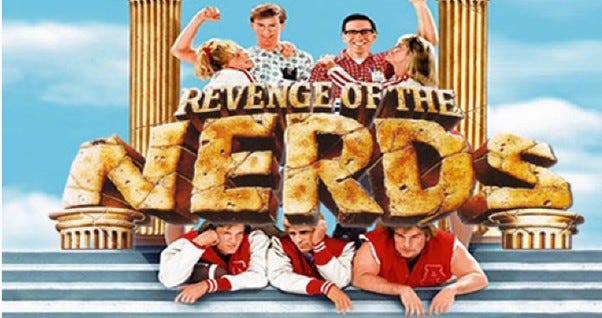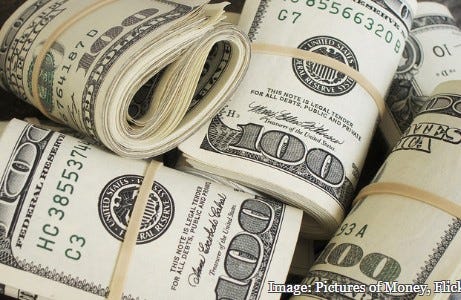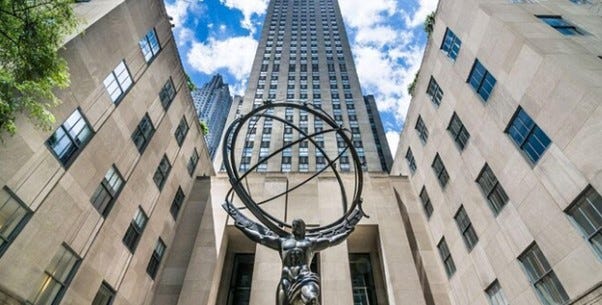There are many excellent aspects to Daniel Jupp’s book, Gates of Hell, including the way its cover depicts Bill Gates who is portrayed as a creepy eyeless creature, in red and black as if he were a monster from a 1970s Doctor Who series. As it happens, this is tragically closer to the mark than it might seem. As I wrote in TCW Defending Freedom, Doctor Who is said to have taken his name from ‘the’ WHO, an organisation now drenched in Gates’s influence.
The design points directly to the focus of danger. Jupp outlines it well. By depicting Gates’s literal lack of vision, the image points to Gates’s wilful inability to see the damage that lies in his wake. Moreover, the image of the syringe embedded within to form the letter ‘A’ links this lack of vision to Gates’s latest and most ubiquitous project, that of mass vaccination.
The book provides a riveting account of the how this nerdy, privileged nobody rose to great heights and continues to amass power and wealth. Moreover, as Jupp points out, whoever and wherever you are, and no matter your opinion of him, Gates will have had some influence over your life whether you are aware of it or not.
The opening chapters do something important and surprising. They deconstruct Bill Gates’s appearance, speculating on the resulting psychology to reveal what motivates the man. Jupp notes that Gates emerged in the era of Revenge of the Nerds, a motif which is insightful and revealing. It would appear that Gates is pathetically needy and as well as nerdy.
Gates is not only deficient in medical and scientific education, he is also largely deficient in terms of any real education. Yet governments and influential figures across the world treat him as if he were an authority on all manner of medical areas. Gates only has to pick up the phone and he can arrange to talk with world leaders and monarchs as he pleases. In this way, decisions with enormous impacts upon people are being made at the highest level, with leaders consulting a man with no real knowledge and a major financial incentive to make certain events happen. Money has now replaced knowledge in the world’s supposed democracies.
Unsurprisingly, Gates is very keen on cultivating a lofty benevolent self-image. His is the myth of the self-made man. The reality is that he has become rather good at risking other people’s money whilst keeping the profits. Even here, Gates’s lack of originality and vision manifests. As Jupp writes in chapter 11, Gates’s manoeuvres were copied from John D. Rockefeller whose business was built by “driving competitors from the field,” rather than improving his own products. And subsequently, to improve its public image, generations of the Rockefeller family adopted the persona of the ‘public philanthropist,’ creating universities, a foundation and the Rockefeller Institute for Medical Research.
Like Rockefeller, Gates learned to cloak his ruthless capitalism, his recklessness and drive to dominance under a mantel of ‘philanthropic goodness.’
Gates, as Jupp construes is a ‘man in a hurry,’ impatient for results and reckless towards outcomes. The Gates modus operandi is to get the product out there and fix the problems later. For the consumer of computer software, what amounts to a workaday irritation when things ‘go wrong’ becomes something far worse for those damaged or killed by his injections. As Jupp points out (page 73) we are human beings, not software.
Jupp reminds us that Bill has changed the world – our world, via his company Microsoft. And Microsoft is pretty much a clone of Gates, reflecting his values and approach. This means it reflects Gates’s obsessive character coupled with a left-wing utopian belief in technological progress.
The problem for everyone who is unavoidably touched by the Gates phenomenon is that Gates’s personality leaves a lot to be desired. He may be adept in presenting himself as a caring giver of vast sums for the good of the world, however, Jupp spills the beans about Gates’s Bad Boss episodes at Microsoft, his inappropriate sexual advances to workers, and his general drive to dominate. He delves into the Epstein affair, and reveals that Gates met Epstein ‘many times,’ beginning in 2011. Is it a coincidence that Epstein was another dubious and powerful character who chose to don a mask of philanthropy?
Why the book is worth reading
Jupp takes apart the carefully crafted public image and sets out for readers the full extent of Gates’s interests and influence. He describes Gates’s character based on a substantial amount of evidence. He identifies his dreams, ideas, drives, psychological background. It is surprising what one can deduce by delving into verifiable quotes, film clips and historical episodes. Jupp insists that he is not undertaking a character assassination, although one might be persuaded otherwise. In fairness, Jupp grounds his remarks firmly upon evidence that is in the public domain. In this way, the book forms a useful and instructive compendium of information. And yet, it is more than that. The book makes for a sober and frightening reading experience, a real-life thriller, a horror story that is unput-downable.
When one realises that the all too recent vaccine mandates were as a direct consequence of Bill Gates’s attitude, we might wish to press the pause button on that ‘man in a hurry.’ Gates’s money and influence went a long way towards shaping what happened in 2020 onwards, the results of which are continuing to play out. It is not a good story. Chapter 8 of the book outlines context of what happened in terms of that Covidian event. This should sound a warning that Gates is still shaping current events in many ways and has a real input in what is to come.
Be under no illusion, this non-medic, this unqualified billionaire sought to mass medicate millions of healthy people claiming:
“Normality returns when we have vaccinated the whole population.”
From where and whom did Gates get the right to make this claim and carry out this plan? Why had all of the scientific and medical knowledge that we had as a society accrued to date been turned on its head? Vaccines were now touted as the only cure for disease, a verifiable medical untruth.
As Jupp outlines, it is essential to understand what happened in 2020 in order to comprehend what is currently planned. Gates is already on the case in terms of those who question him:
“We’ve got to put a lot of money into changing behaviour.”
This is why so many resources are going into censorship. This is why we hear now so much about ‘misinformation’ and ‘disinformation’ and even ‘mal-information.’ Fact checkers do check facts; however, the likelihood is that they do so to ensure that facts are not seen by the public at large. This is not about any openness in exposing the truth.
When taking his foundation and all of his organisations into account, Gates is the WHO’s biggest private donor at 12% of its total funding, second only to the United States’s funding at 20%. Gates, therefore, via the Foundation he controls, which is only answerable to him and close associates, has more say over the direction of global health policies than any nation state except the United States.
It is fair to say then that Gates has an extraordinary amount of influence over the policy direction of world-wide human health. And yet, Gates’s broadbrush sweeping vision does not take the individual human person into account. He can barely comprehend the concept of a sovereign nation. He takes a decidedly internationalist approach and undermines national sovereignty. He shows a callous disregard for bodily autonomy, human rights, and democratic conventions. He is manipulative and cynical. Surely Gates’s desire to penetrate every person in the world needs to be taken seriously. Moreover, people need to understand the current on-going WHO power grab in this context.
Gates is emblematic of a top-down “we know best” technocratic approach. This modus operandi means that he does not reflect or learn from what happens, not from the results of mass medication (for example), nor reactions from people or medics. He knows what’s best or rather what he can present as best for the sake of appearances.
Jupp demonstrates that Gates will frequently present one set of objectives whilst another set is playing out. This is suggestive of different, hidden aims.
What if it is not a conspiracy theory and his real aim is to depopulate? Is he making any headway?
Bret Weinstein, extrapolating the whistle blown New Zealand data, has estimated some 17 million dead from the covid ‘vaccines,’ one in 800 severely injured, in addition to a huge toll on fertility worldwide. Additionally, Gates funded ‘gain of function’ research continues to create what are effectively bioweapons. Gates funds the blocking out of sunlight, a source of vitamin D and essential for crop growth. He is America’s biggest private landowner repurposing farmland, cutting food production and creating artificial foods. He was part of a cohort that demanded the banning of repurposed drugs that facilitated the emergency use of injections and the ensuing dreadful calamity.
Whatever the claims, Gates’s concerns are clearly not about health or prosperity for ordinary people. However you envision Bill Gates, this cannot be construed as for the ‘good.’
Institutions that were supposed to prevent this sort of thing have collapsed, caving in to pressure, threats or bribery. It is predictable to observe that Gates is a frequent sojourner at Davos, home of the World Economic Forum (WEF), the self-elected cadre of billionaires with their plans for a ‘stakeholder capitalism.’ Illustrative of this ‘stakeholder capitalism,’ is, of course, Gates’s ‘philanthropic method’ which is actually underwritten by you, the taxpayer. This is done via government funding. This is a financial arrangement which is frequently characterised as fascistic by many.
And this is why Gates is the most dangerous man in the World. I urge readers to read Daniel Jupp’s book and gain the insight you need to understand the man that is Bill Gates and the level of influence he has over you and everyone around you. This book will help you to understand and explain to others why Gates is so dangerous. Bill Gates is not a nice nerdy man in a jumper, he is an impatient, egotistical malevolent rich man, a Malthusian, who might just be thinking that you are the carbon we need to eliminate.
Gates of Hell: Why Bill Gates is the Most Dangerous Man in the World by Daniel Jupp is published by Bombardier Books, Post Hill Press, 2023.
Available from Amazon in both paperback and Kindle editions.
Thank you for reading! Feel free to comment and share.
I do not charge for subscriptions, however if you find my writing interesting and worthwhile, I would be glad to receive one-off donations through the Buy me a Coffee scheme. Do subscribe if you haven’t already, subscribing alone supports my work.











It's a terrific read Daniel, thank you for all your work putting the book together. I will reiterate my remarks about it being unput-downable, it was at times like being on a roller coaster... and just when you think you know 'all about Gates,' there then comes a detail that brings on an open mouthed gasp of horror.... seriously readers, get this book!
Thank you very much for such a generous review. I really appreciate you highlighting the book for your followers and readers and I hope they will take the time to have a look at it too. Gates is not of course alone in being a billionaire shaping the world in an unaccountable and dangerous fashion, but I do think he is the one who represents the greatest danger because of the technology he applies, the recklessness of its application, and the global nature of his interests. One of the other things the book covers extensively is his role in the whole Net Zero and (allegedly) Green agenda, and here too we see utopian claims (averting potential disaster, improving the world) contradicted by selfish wealth accumulation and a total disregard for consequences.